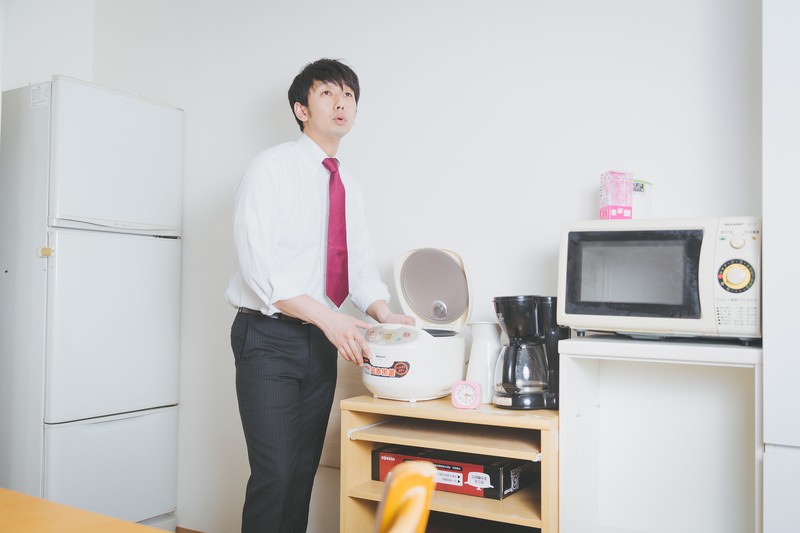
Finding a home in Japan can be hard for newcomers. The rental market has its own rules—like key money, deposits, and renewal fees—that may surprise people used to other countries.
This guide covers Japan apartment rental: private rentals, UR, and public housing. It also explains documents, fees, and cultural rules. The insights are based on the real experiences of a foreign resident who has lived in Japan for nearly ten years, which we share here through the Expat.jp editorial team. If you know these basics, you can avoid common mistakes and find a more comfortable home.
👉 Looking for a step-by-step guide on renting without a guarantor? Check out our article: How Foreigners Can Rent Apartments in Japan (Without a Guarantor)
Overview of Renting in Japan
Renting an apartment in Japan is different from what many foreigners are used to. Most landlords list their properties through real estate agencies, and nearly every rental goes through an agent. While this system makes it easier to search for housing, it also means that tenants must follow Japan’s rental customs.
One of the biggest differences is the cost structure. On top of monthly rent, landlords almost always charge extra fees. These include key money (礼金, usually 1–2 months’ rent), deposit (敷金, 1–2 months’ rent), and renewal fees (更新料, another 1–2 months’ rent when you renew the contract). Altogether, it is common to spend the equivalent of six months’ rent upfront when moving into a new apartment.
Many foreigners feel overwhelmed by these costs. The good news: you can reduce them. We will introduce practical options—like zero-deposit apartments, free-rent offers, and foreigner-friendly agencies—in a later section of this guide.
Renting from Private Landlords
The majority of people in Japan find housing through real estate agencies, which act as intermediaries between tenants and landlords. This is the mainstream path and gives you access to the widest range of properties.
Key points about private rentals:
- Search process – Agencies usually list properties on real estate sites. If you find an apartment online, ask the agency if it is still available. Then book a visit (naiken) through the office and arrange an inspection. Always make an appointment in advance.
- Application – After choosing an apartment, you submit the necessary documents through the agency.
- Contract signing – If approved, you sign a lease agreement (keiyaku), which is typically for two years. At this stage, you must also pay the initial costs, which may include deposit, key money, agency fee, and the first month’s rent.
- Guarantor requirement – Most private rentals require a guarantor who has stable income and resides in Japan. This can be one of the most challenging parts of the process for foreigners.
Private rentals give you the widest choice of location, size, and style. But they also involve complex steps and high upfront costs. Landlords and agencies almost always write contracts in Japanese. They also allow less negotiation than in many other countries. Those who doesn’t speak Japanese should use an English-speaking agent. If not, ask a Japanese-speaking friend to help with the process.
👉 Tip: If you want to know more about renting without a guarantor, see our dedicated guide: How Foreigners Can Rent Apartments in Japan (Without a Guarantor).
👉 Useful links: Representative real estate websites in Japan include:
Documents Required for a Rental Contract
When applying for an apartment in Japan, landlords and real estate agents will ask you to provide several documents. Having these ready in advance makes the process smoother and shows that you are a serious applicant.
Typical documents include:
- ID card – A government-issued photo ID such as a driver’s license or your My Number Card.
- Passport – A copy of the photo page.
- Residence Card (在留カード) and Residential Registration (住民票) – Proof that you legally reside in Japan. If you are new to Japan, you must register your address at City Hall within 14 days of moving in. For details on this process, see our guide: A Timeline Checklist for Moving in Japan
- Proof of Income – Recent payslips, a certificate of employment, or a tax withholding slip (gensen choshuhyo).
In many cases, the landlord will also require a guarantor (保証人). If you cannot provide one, you may need to use a guarantor company, which charges a fee—often equal to half or one month’s rent—for covering the risk on your behalf.
Foreign residents often struggle with paperwork. Documents are usually in Japanese, and many employers are not used to preparing income certificates in the right format. To avoid delays, ask your HR department or employer to help prepare the necessary proof in advance, and don’t hesitate to request an English-speaking agent if you feel unsure about the requirements.
Typical Rental Conditions in Japan
Rental contracts in Japan often come with extra costs that surprise newcomers. While the monthly rent mRental contracts in Japan often include fees that may not exist in other countries. Understanding each one helps you avoid surprises when budgeting for your move.
The most common conditions include:
- Key Money (礼金) – A non-refundable gift to the landlord, usually equal to 1–2 months’ rent. This practice began as a way to thank landlords after World War II, and while less common today, many properties still require it.
- Deposit (敷金) – Refundable in principle, usually 1–2 months’ rent. It covers cleaning and repairs, and any remaining balance is returned when you move out.
- Renewal Fee (更新料) – Many contracts require tenants to pay 1–2 months’ rent every two years to extend the lease.
- Agency Fee (仲介手数料) – A standard commission to the real estate agent, typically one month’s rent plus tax.
These costs form part of Japan’s rental culture. The system values long-term stability. As a result, tenants in Japan tend to move less frequently than in other countries.
👉 Tips:
- Public housing and UR apartments do not require key money. Some private properties built with public financing are also exempt. One of our editorial team members even rented such a property with no key money thanks to this system.
- By law (Real Estate Brokerage Act / 宅地建物取引業法, Article 46), Agent Fee cannot exceed one month’s rent plus tax. If an agent asks for more, it is illegal, and you should point it out.
- To cut initial costs, consider zero-deposit apartments (ゼロゼロ物件) or free-rent campaigns where the first month or two of rent is waived. These options are not common everywhere, but they can make a big difference if you find one.
Public Housing
Local governments in Japan manage public housing, which provides affordable apartments for low- to middle-income residents.
Key points about public housing:
- Eligibility – Applicants must meet income requirements set by the municipality. They usually give priority to families, elderly residents, or people with disabilities.
- Cost – Cities set rent based on household income and location. Some units start at about 10,000 yen per month. Public housing often costs far less than private rentals.
- Application process – Municipalities accept applications several times a year and run lotteries to decide who gets the vacant units.
- Requirements – To apply, you need legal residency in Japan. You also need proof of income and household size.
Public housing is hard to get. Cities run lotteries about five times a year. In Tokyo, up to 50 people may apply for a single unit. In contrast, in rural areas the ratio may drop to one-to-one or even lower.
Tokyo separates family housing from single-person housing. The single-person units have strict rules. To qualify, you often need to live in Tokyo for three years.
Because of these strict requirements and the lottery system, even if you meet the criteria, acceptance often comes down to luck. So don’t rely only on public housing.
👉 Tip: If you are considering public housing, check your local city hall website for application schedules and eligibility details. Each municipality has its own system, so requirements and deadlines differ depending on where you live.
- Tokyo Metropolitan Government Public Housing Information
- Osaka Prefecture Public Housing Information
UR Housing (Urban Renaissance Agency)
The Urban Renaissance Agency is a semi-public body. It manages apartments across Japan and provides UR housing. UR sits between public housing and private rentals, with fewer rules but higher rent than government housing.
Key points about UR housing:
- No key money, no renewal fee, no guarantor required – These conditions make UR housing especially attractive for foreigners who want to avoid the typical upfront costs of private rentals.
- Cost – Rent is set according to market rates. While higher than public housing, UR apartments are still often cheaper than private rentals once you factor in the absence of extra fees.
- Quality – UR apartments are generally well-maintained, with reliable facilities and management. Many are located in convenient areas near stations.
- Application process – Vacancies are listed publicly, and applications are first-come, first-served. Competition can be high, especially in large cities.
For foreigners, UR housing can be one of the easiest entry points into Japan’s rental market because it eliminates the need for a guarantor and cuts down on hidden costs. However, because demand is strong, desirable properties are often taken quickly, and you may need to monitor listings closely.
👉 Tip: You can search available UR apartments in English on the official site: UR Housing Listings in Tokyo.
Useful Tips for Expats
Renting in Japan comes with its own set of rules, and being prepared will make the process much smoother. Here are some practical tips to keep in mind:
- Understand the contract – Lease agreements are almost always in Japanese. Ask for a bilingual agent or use a translation service to make sure you understand the terms before signing.
- Check the condition of the apartment – When moving in, it is standard practice in Japan to take photos of every room, especially any areas that already show wear and tear. This record helps prove you did not cause the damage when you move out.
- Budget for renewal fees – In addition to the initial costs, remember that you may have to pay 1–2 months’ rent every two years as a renewal fee. Plan your budget with these costs in mind.
- Be mindful of deposits – Part of your deposit will likely be used for cleaning and repairs. Don’t expect to get the full amount back when you leave.
- Timing matters – The busiest moving season is February to April, when demand (and prices) are at their highest. If possible, try to move outside of this window to save money and have more choices.
- Language support – Bring a Japanese-speaking friend or colleague when visiting an agent if you’re not confident in Japanese. This can help avoid misunderstandings during negotiations and contract signing.
Useful Links and Resources
Private Rental Search Sites
Official Housing Information
- Tokyo Metropolitan Government Public Housing
- Osaka Prefecture Public Housing Information
- UR Housing (English site)
Foreigner-Friendly Agencies
These links provide direct access to official public housing and UR information, as well as agencies that specialize in assisting foreigners. Using both official and foreigner-friendly sources will help you get a fuller picture of what’s available.
Conclusion
Finding housing in Japan can feel complicated at first, with unique fees, guarantor requirements, and application procedures. But once you understand the system—whether through private rentals, UR housing, or public housing—you will know what to expect and how to prepare.
As this guide shows, planning ahead with the right documents and budget will save you both stress and money. And if you want to explore practical strategies for renting without a guarantor, don’t miss our companion article: How Foreigners Can Rent Apartments in Japan (Without a Guarantor).



4 thoughts on “How to Rent an Apartment in Japan: Key Money, Contracts, and Housing Options”
Comments are closed.